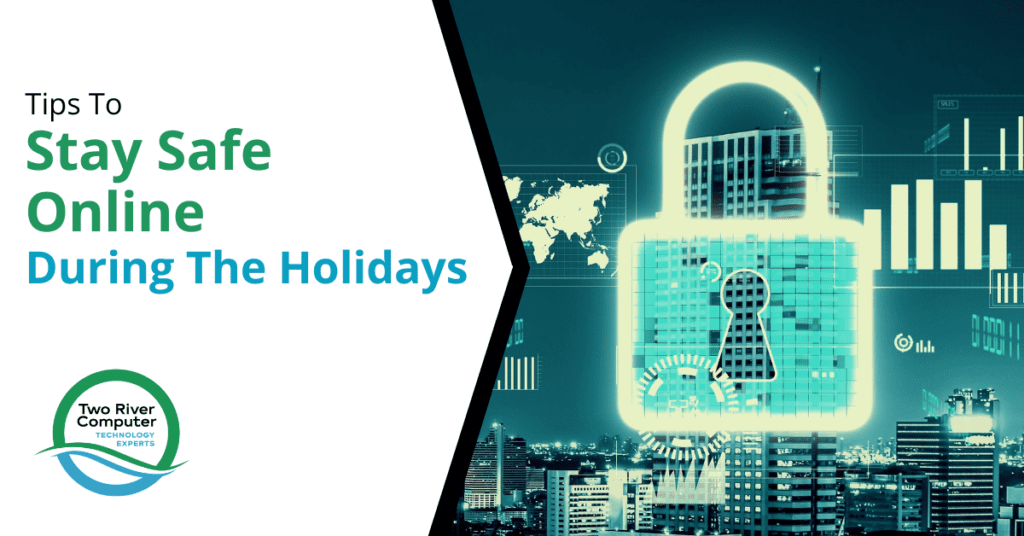
Tis the season of festive cheer, giving gifts and…cyber security scams. Yes, you read that right. While the holidays are undoubtedly a time of spending time with loved ones and relaxing, you also have to be vigilant.
In recent years, cybercrime has risen dramatically over the festive period. Ransomware, for example, increased by 30% in November and December 2021 compared to other months of the year.
Hackers are banking on the fact that they can sneak into people’s inboxes amidst the flurry of emails about holiday parties, retail offers and festive eCards, so keep your wits about you and don’t let your guard down.
Of course, it’s important to be cyber security aware throughout the year, not just during the holidays. However, as attacks become prevalent over the next month, you’ll want to keep an eye out. With that in mind, here’s some advice on how to stay secure online over the holiday period.
Upgrade Your Accounts With Multi-Factor Authentication
Multi-factor authentication (MFA) is a form of security protection that requires you to access your online accounts with two verification mechanisms, such as a password and a login code sent to your phone, or an email verification link.
We highly recommend bolstering your online security by enabling MFA on your most important accounts, and any other that have your credit card details saved, such as retail applications and websites.
This is because one of hackers’ favorite modes of attack is breaking into people’s online accounts to commit fraud. If they manage to guess your password, or is it exposed in a breach online, they could easily login to your online accounts and make away with a lot of money or products.
MFA directly protects against this, as a hacker won’t be able to login without the second authentication token, which they’d need your phone or email login for.
As well as using MFA, we also recommend using unique passwords for each of your online accounts. That way, should your password be compromised in a data breach for one of your applications, your other accounts will still be safe.
Watch Out For Phishing Emails And Text Messages
Phishing scams soar during the holidays, as hackers masquerade as well-known retailers and brands in order to steal people’s credit card data. Some of the most common scams at this time of year include fake order or delivery receipts, which lure the victim into clicking on a link and sharing sensitive information.
You should also look out for fake requests for donations from phony charities, and emails about holiday work parties that look suspicious or come from an unknown sender.
Update All Your Devices
When an application or device signals that it’s time for an update, don’t hesitate. These updates not only contain performance improvements; they also have crucial software fixes that remediate vulnerabilities in the software.
Left unchecked, cybercriminals could exploit these vulnerabilities to break into your operating system or application and, from there, launch an attack or spy on your activity.
Use PayPal or Another Reputable Digital Wallet to Enhance Payment Security
When you find a great bargain while shopping online, you may be tempted to enter your credit card details right away! But you need to be careful. Attackers often set up fake retail websites and applications at Christmas, offering amazing deals that are, literally, too good to be true to entice victims in.
Because of this, and general online safety, we recommend adding a buffer when making payments online by using services like PayPal to add additional security to the payment process. It’s also worth using a wallet app like ApplePay or PayPal for additional security.
Setup Your Smart Gadget For Success
Many of us will be wanting to receive smart gadgets like Google Echo, an Apple Watch or even a smart fridge for Christmas. While these products are super cool and definitely something to be excited about, you need to make sure you configure them securely.
After all, any device that connects to the internet can be abused by hackers and research shows that smart gadgets are some of the most vulnerable to attacks. In fact, a study of IoT device attacks discovered that these gadgets are attacked about 800 times per hour, and 66% of these attempts are successful.
To setup your smart gadgets securely, make sure to:
- Change the password as soon as you’ve turned the device on
- Use a strong, unique password
- Change the name of the device to something that only you are your family understand
- Implement automatic updates
Move Into The New Year Confident In Your Business and Personal Cybersecurity!
Need cybersecurity support, but not sure how to get started? You can consider us your own personal on-call security and IT team. We’re here for you at 732-747-0020 so contact us today.


